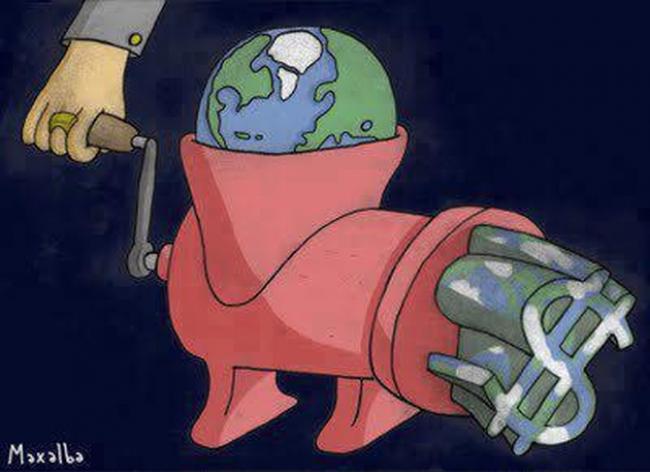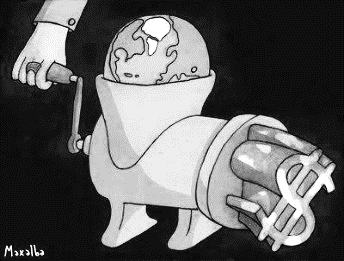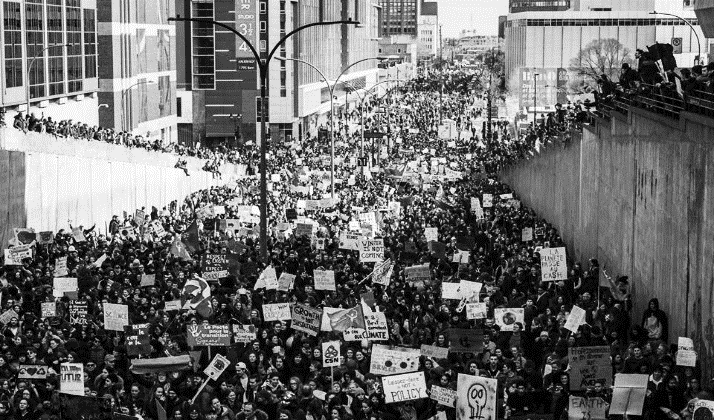Articles Menu

Election offers only partial solutions
Roll Up Your Sleeves,
For the Green New Deal
Our federal election should let us choose a climate justice plan to remedy global climate disruption and growing economic inequality. But, at best, the major parties offer only extremely partial solutions.
 This is because they reject policies calling into question the existing economic system, which demands relentless growth in a finite ecosystem. Loyalty to this system rules out serious solutions to the multiplying environmental and social disasters we face. No party platform or ‘climate plan’ comes close to what is necessary.
This is because they reject policies calling into question the existing economic system, which demands relentless growth in a finite ecosystem. Loyalty to this system rules out serious solutions to the multiplying environmental and social disasters we face. No party platform or ‘climate plan’ comes close to what is necessary.
This is not an argument against voting, however. It’s an argument against ONLY voting. It’s always good to have allies in the House of Commons. But, if we spend a few minutes marking a ballot, then let the corporate profit-seekers keep running the show, we’re doomed.
Our best hope for an election result is a minority government, with as many eco-conscious MPs as possible. But any Parliament that does not understand the need for “system change, not climate change” will continue to be part of the problem. Replacing capitalism for the 1%, with democratic economic planning by the 99% must be the goal.
So, our best hope for after the election is that tens of thousands of us join the emerging Green New Deal movement, while supporting ongoing First Nations’ land-defense mobilizations, youth-led “Fridays for Future” school strikes, and Extinction Rebellion actions.
During the election we should use the increased attention paid to politics to build this movement into one that can create solutions.
We need a real, democratic climate justice plan!
While forests burn, age-old icebergs melt, and Fraser River sockeye go extinct, we must stop asking capitalist politicians and corporate boards to produce climate justice plans. They won’t. That would hurt profits.
They talk about plans, because it’s more and more obvious that routine capitalist economics and governance cannot prevent global ecological, economic, and social system crashes. But they give us bits of a plan, not a comprehensive blueprint for the whole structure.
Our taxes are diverted from healthcare, education, and other social spending to repair the impacts of climate disruption and environmental vandalism, so corporate taxes can be kept low to maintain profits.
Wages fall, and affordable housing disappears. Climate refugees flee brutality and hunger. First Nations protecting their homelands face militarized police. They always prioritize their system over our survival.
We need a plan that can pull together all the interwoven strands of crisis and begin to create interwoven solutions. But who’s going to do it?
The people united—we can’t just wait until the next election!
The Green New Deal offers a beginning framework to start hammering out a transition plan (or interconnecting plans). People getting together to discuss problems and plan remedies is democracy’s bedrock foundation.
Implementing the needed transition will take social and economic planning that tosses out market-based, regulatory, and technological sham-solutions. To make it comprehensive and equitable we must  ensure it is thoroughly inclusive and democratic.
ensure it is thoroughly inclusive and democratic.
Going beyond electoralism, we’ll need a huge mass movement of union and non-union working people and of our allies—all genders, ethnicities, religions, and ages, especially youth. While setting desired goals, we’ll also have to develop strategies and tactics, try them out, and revise as necessary.
Montreal school strikers, March 2019
All past experience shows that growing our political power will include extra-parliamentary activity—massive street rallies and occupations, coordinated strike actions, and social solidarity between neighbourhoods and cities and across borders. And then, by processes we can’t predict precisely, we’ll need to form governments.
Democratic governmental and state power will be needed to enforce the will of the majority and to coordinate the rapid, massive planning and implementation tasks required for the democratic transition to a post-carbon, post-capitalist society.